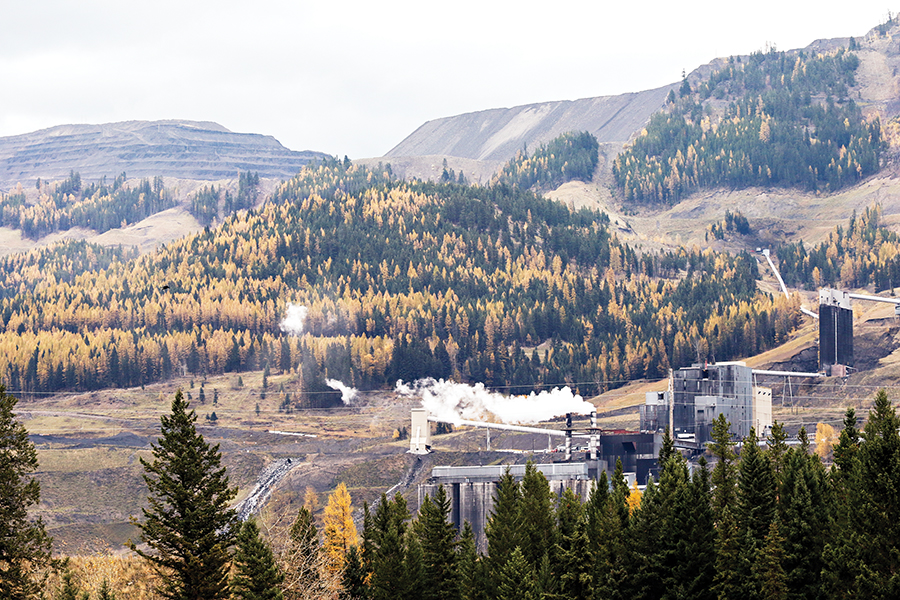On March 10, President Obama will host a state dinner at the White House for newly elected Canadian Prime Minister Justin Trudeau, the first time such an event has occurred for a Canadian leader in nearly two decades.
The historic gathering between the two liberal leaders could signal a watershed moment for the conservation world, which is on high alert as stakeholders attempt to ensure that a suite of transboundary natural resource measures figure prominently on the menu, including a call by Montana’s largest tribal government to address concerns over mining contaminants in the state’s waterways.
On both sides of the border, the growing wish list of environmental measures is unspooling rapidly.
For Trudeau and the British Columbia conservation contingent, the accord could be a chance to follow through on former Canadian Prime Minister Jean Chretien’s 2002 intention to add the “missing piece” to the transboundary Waterton-Glacier International Peace Park, created in 1932.
“Americans and Canadians should be proud to have initiated the world’s first international peace park,” said Harvey Locke, co-founder and strategic advisor of the Yellowstone to Yukon Conservation Initiative. “Protecting the ‘missing piece’ in the Flathead is one of the most obvious major conservation gains available in the world today.”
For Obama and the Montana-enviro set, the dinner affords an opportunity to build on protections furnished on the U.S. side of the North Fork Flathead River last year.
“We were thrilled when Congress passed the North Fork Watershed Protection Act last year, which protected the U.S. side of the Flathead from mining,” said Dave Hadden, of Headwaters Montana. “We hope that this dinner could lead to a significant announcement to further transboundary conservation in the Crown of the Continent.”
And on the Flathead Indian Reservation, leaders of the Confederated Salish and Kootenai Tribes are pushing the government to refer an impaired transboundary watershed surrounding Lake Koocanusa to the International Joint Commission.
In a Feb. 11 letter to Secretary of State John Kerry, CSKT Chairman Vernon Finley requested that the IJC establish an International Watershed Board to examine and report on the existing water quality in the Elk and Kootenai River watersheds, with equal representation across the international boundary from tribes, first nations, agencies, and stakeholders.
The Tribes made the request for bi-national oversight pursuant to the Boundary Waters Treaty of 1909, which established the IJC to help prevent and resolve disputes about the use and quality of transboundary water resources.
The CSKT’s concerns are shared by numerous stakeholders, and center on increasing amounts of coal waste byproducts leaching into the heavily mined Elk River and its many tributaries, which drain into two bodies of water shared by B.C. and Montana – Lake Koocanusa and the Kootenai River – both of which are showing increased levels of mining contaminants like selenium in the muscle tissue of fish species.
There are currently five coal mines in the Elk River Valley causing toxic pollution, all of which have launched expansion proposals that are in the exploration, permitting or development stage. Operated by Teck Coal Limited, the world’s second-largest exporter of metallurgical coal, the mines produce approximately 70 percent of Canada’s total annual coal exports and directly employ more than 4,500 full-time workers.
Rich Janssen, director of CSKT’s Natural Resources Department, said the CSKT council joined with the Ktunaxa National Council and the Council of the Kootenai Tribe of Idaho in 2012 to request that their respective federal governments refer the matter of impaired water quality in the Kootenai River Basin to the IJC.
“Our concern is that the risk to fish and wildlife, to cultural resources and to species important to human health is not being looked after,” he said. “We just feel that the state of Montana and province of British Columbia have not been looking at the entire watershed in the way it should have been looked at. Water flows down hill, and here it is coming out of Canada and into our aboriginal territory.”
According to the Tribes’ letter: “We are deeply concerned that no clear action has been taken, and since the original request, the Province of British Columbia has issued Permit 10751 to Teck Coal Limited, permitting continued discharge from its five open-pit coal mines into the Elk River. Additionally, four of those five mines are expanding.”
“In other words,” the letter continues, “since the three tribal governments made their requests Canada’s response has been to expand mining and contaminant releases into the Elk River and neither government has referred the matter to the IJC,” the letter states.
Janssen said the Tribes renewed the efforts to trigger IJC involvement in advance of the Obama-Trudeau dinner, believing that the opportunity to act fast on issues of mutual interest could arise during the meeting.
“Knowing that time was of the essence, we wrote the letter directly to Secretary John Kerry,” Janssen said.
Christopher Sandrolini, director of Canadian Affairs with the U.S. State Department, confirmed that his office had received a copy of the letter.
Although Sandrolini said it’s impossible to know what issues the leaders will broach at the dinner,
“At this point it is impossible to say because there have been all kinds of discussions about what exactly the visit will be about,” he said. “There are tons of issues at stake. Our office is very much focused on boundary waters issues, but we don’t know whether they will be raised.”
Tribal leaders including Janssen say the current initiatives by British Columbia and the state of Montana lack adequate representation by the Tribes, First Nations, U.S. and Canadian federal agencies, and other stakeholder groups.
“We request that you ensure a transparent, objective process that adequately represents aboriginal interests in the transboundary Kootenai River watershed,” the letter states. “There is only one way to achieve this, and we therefore reiterate our request to you to aggressively promote and ensure an IJC facilitated International Watershed Board.”
